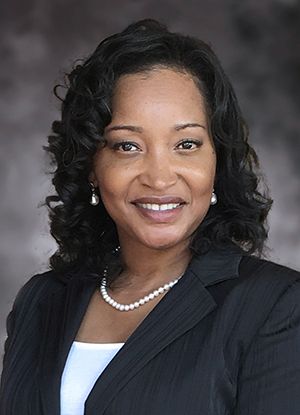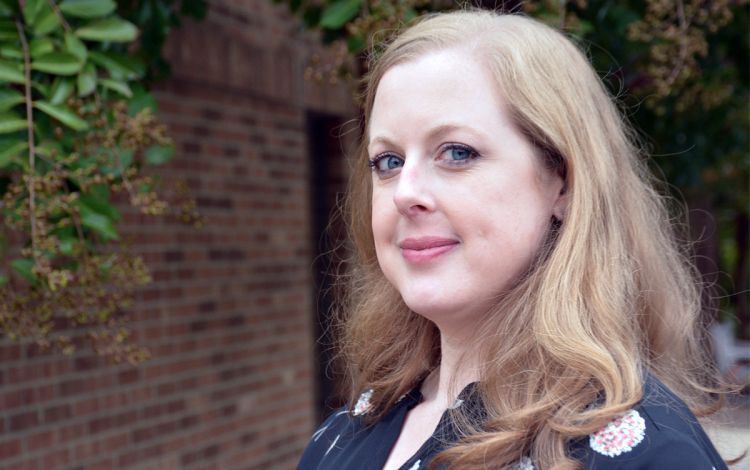Program Offers Skills Training to Explore New Paths at Duke
Application deadline for Duke’s Foundational Skills Program is April 4

Imer Ramadanovic describes himself as a people person. In his role as a health unit coordinator at Duke Homecare and Hospice, Ramadanovic relishes the opportunity to help patients and their families and work alongside colleagues at the Hock Family Pavilion, where, among other clerical tasks, he greets visitors and updates online schedules and charts.
While he’s been in his role since 2020, he previously spent roughly 11 years working at the same clinic as a food production associate. The change in jobs came after Ramadanovic completed the Foundational Skills Program, part of Duke’s Professional Development Academy run by Learning & Organization Development (L&OD).
“I couldn’t have even applied for the role if it weren’t for the classes and the education they gave me,” said Ramadanovic, who was part of the program’s first cohort in 2018 and 2019. “The program really helped me out.”
After a pandemic-related hiatus, applications are now open for the second edition of the Foundational Skills Program, which will start this summer and run 40 weeks.
The Foundational Skills Program is open to Duke University and Duke University Health System employees in service areas or certain job levels. It’s designed to help staff hone the customer service, time management and collaboration skills they have and build the clerical and office support skills to explore new opportunities within Duke.
Applicants must be nominated by their manager and complete the application, among other requirements, by 5 p.m. on April 4, 2022.
 “I think this program says something positive about the institution and the individuals who are nominated for this,” said Assistant Director of Learning & Organization Development Gina Rogers, who developed the program. “During the pandemic, we’ve heard a lot about the ‘Great Resignation,’ and labor shortages, and how these impact all systems. So one of the things that this program does, from an institutional perspective, is it helps us build our pipeline. And from an individual perspective, it’s helping our people with the upskilling and re-skilling that we know is important in the job marketplace.”
“I think this program says something positive about the institution and the individuals who are nominated for this,” said Assistant Director of Learning & Organization Development Gina Rogers, who developed the program. “During the pandemic, we’ve heard a lot about the ‘Great Resignation,’ and labor shortages, and how these impact all systems. So one of the things that this program does, from an institutional perspective, is it helps us build our pipeline. And from an individual perspective, it’s helping our people with the upskilling and re-skilling that we know is important in the job marketplace.”
The program consists of three phases. In the first portion involves building basic clerical skills such as typing and getting comfortable with common computer tools. Later, participants can pick whether they’d like to build skillsets designed for university environments, or learn the intricacies of working in a health care setting. Learning these specialized skills are the thrust of the second phase, while the third portion of the program will consist of working alongside professionals in a clinical or university setting, gaining first-hand experience in their new fields.
 “When we say ‘Foundational Skills,’ we’re not just talking about skills to be a clerical worker in the health system or university, we’re also talking about skills for life,” said Learning & Organization Development Senior Practitioner Marjorie Siegert, who will coordinate this year’s edition of the program. “You can use these skills in helping kids with their homework, or writing letters or just having well-rounded skills to help you do anything.”
“When we say ‘Foundational Skills,’ we’re not just talking about skills to be a clerical worker in the health system or university, we’re also talking about skills for life,” said Learning & Organization Development Senior Practitioner Marjorie Siegert, who will coordinate this year’s edition of the program. “You can use these skills in helping kids with their homework, or writing letters or just having well-rounded skills to help you do anything.”
Ramadanovic, 53, had only worked in kitchens prior to enrolling in the program. Now, he enjoys helping his colleagues in the clinic and taking on the challenges of keeping documents and schedules that are integral to the function of the facility in order.
“This program gave me a chance to challenge myself and do something else,” Ramadanovic said. “I wanted to see what other things I can do. I enjoyed cooking for our patients, but I also wanted to try something different.”
Send story ideas, shout-outs and photographs through our story idea form or write working@duke.edu.